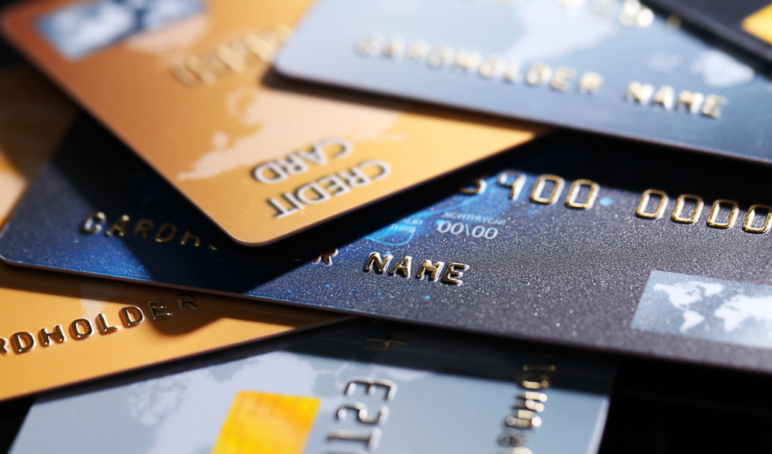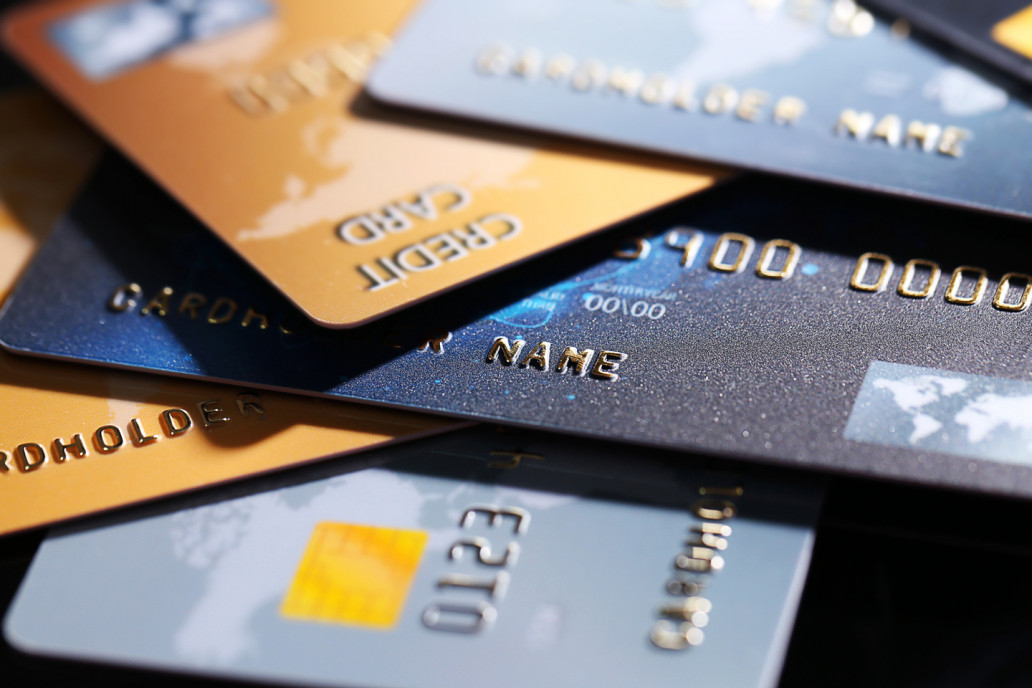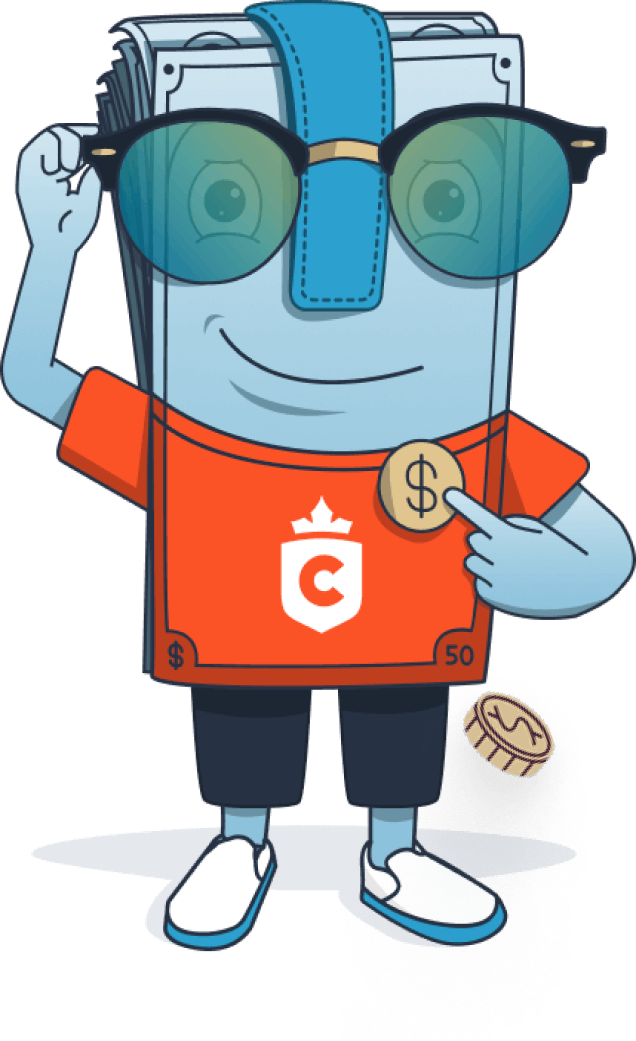

It’s no secret that credit cards are everywhere. Canada has more than 2 credit cards per person in circulation, and over 95% of Canadian adults own a credit card.
Well, with credit cards being so widely used, it’s important to know the risks and the benefits of owning them. Let’s answer the age-old question; should I get a credit card?
Benefits Of Owning A Credit Card
There wouldn’t be so many people with credit cards if there weren’t benefits to them, would there be? Well, there is definitely a reason for it, but they’re only great when used wisely. Here are a few of the biggest bonuses to credit card ownership.
Pay In Advance
Having money upfront is helpful in certain circumstances! Nobody wants to wait until payday for every single purchase. If you see the flight is cheap right now, it may not be on Friday when you get paid.
Having the ability to purchase things without worrying about your current available cash balance is great, and it can free you up to make purchases that you otherwise wouldn’t have. The only problem is that it can lead to dangerous territory.
Boost Your Credit Score
Whether you intend to ever get another credit card or not, you should care about your credit score. It affects your housing opportunities, future mortgage interest rates (or approval), and any loan you may take out in the future.
If you don’t consider yourself a safe spender, you don’t have to carry your credit card around everywhere to boost your score. You can easily set it up to pay for a few subscriptions like Netflix and then pay it off at the end of the month. That way, you’ll still have the new active line of credit that you can maintain for a long period of time, which will undoubtedly help your score. It’s a very simple trick, but it won’t get you many rewards.
If you’re starting out from scratch and looking to build credit, this is the easiest way to do it. Even making one purchase and paying it off on your first credit card will establish a base for your score.
One of the factors in your score is the length of credit, so the longer you keep the card in good standing, the better. Starting as early as possible gives you the best edge.
Another factor is credit card utilization. Once you have the card, try to keep your spending under 10% of the total limit, and 20% at the most. Anything above 40% will hurt your score, but keeping it under 10% is considered excellent and will continue growing your score over time. There are plenty of credit score guides online for more details.
Rewards
Now, this comes with a serious clause. If you wind up owing any interest on your card, the rewards are basically canceled. Many credit card companies offer a much smaller percentage than the interest you pay if you leave an outstanding balance at the end of the month.
However, if you use the card responsibly, you can get rewards for simply making your regular purchases. If you treat the card like a debit card and don’t spend more than you have, then this can be a great way to generate a little passive income.
Some people even use their credit cards all throughout the year and pay for their vacations using the rewards points! If you know you’ll be responsible, look into the rewards that cards offer.
Some will even offer large cash back advances for opening the credit line and using it within the first 90 days or so. This is one of those credit card traps you should never fall for. However, if you know you’re going to be buying a new $1,000 computer and there’s a $200 welcome bonus for spending $1,000 or more in the first 30 days, why not take the opportunity to make $200? Just remember to pay it off.
Risks Of Credit Cards
There are undoubtedly some major risks associated with owning a credit card, and you should do your best to avoid them. If you’re not a safe spender, the general rule of thumb is that it’s probably best to stick to your debit card or cash. Here are a few things to watch out for.
Theft
Theft is one of the most obvious risks of owning a credit card, and it affects more people than you think. When you swipe a credit card or buy something online, that encryption can only protect you so often. Data breaches are very common and extremely hard to detect.
Believe it or not, the average time for companies to even notice a data breach is 228 days, meaning your credit card information could be in the hands of a thief for that long (or longer) before you even find out.
However, the risk of this happening to a credit card is no higher than the risk of a debit card being the subject of a breach. If you already use a debit card, a credit card won’t pose any additional risk, even if your credit limit is higher than your checking account. That’s because you can easily report a fraudulent claim when it comes up.
Debt
Credit card debt is one of the most serious plagues in the consumer world. In fact, 29% of Canadians currently have outstanding credit card debt.
This debt is different from the debt on your auto loans or mortgage payment, as the interest rates are often much higher on credit cards. If you take out a $10,000 car loan with 4% interest, you’re only paying an additional $400 in interest. However, if you take out $10,000 on your credit card and only make the minimum payments for a year with a 20% APR, you’ll be paying an additional $2,000.
Credit card traps should always be avoided. Don’t take on more expenses than you can handle, and do your best to pay the card off (in full) at the end of every month to avoid the high-interest debt.
This kind of debt can haunt you if you don’t pay it off, and it can lead to vicious cycles of paying with other loans until the debt is too overwhelming. If you avoid overspending and falling for any traps, you’ll avoid the need to file for bankruptcy.
Types Of Credit Cards
Before you decide if a credit card is right for you, it’s important to know what types of credit cards are available to the average consumer. While companies offer a wide variety of different cards for different people with different credit histories, they can all be broken into two categories.
Unsecured Credit Cards
Unsecured lines are the most common types of credit cards, and the ones most people will think about when talking about credit cards. These are lines with no collateral. Creditors are simply trusting that you care about building your own credit standing enough to pay them back. Because of this, they typically offer higher interest rates.
Without collateral, creditors aren’t guaranteed their money will return to them, making interest rates and incentives (like rewards) higher for consumers and businesses that take out loans.
If you’re not financially-disciplined or if you’re already in overwhelming debt, an unsecured line is unlikely to be the safest option for your situation, so look into your other options if you need cash.
Secured Credit Cards
Secured lines simply have collateral. Many will have you pay the full credit limit in advance, which the creditor will keep in a secure account, and you’ll essentially be borrowing money from yourself. This is a great way to boost your credit score if you’re afraid of overspending on a credit card.
If you’ve never owned a credit card before and you don’t know if you have the self-control, this may be a great way to get some of the benefits of credit card ownership without the personal risk. However, secured lines likely won’t offer any rewards programs, if that’s a deal-breaker for you.
Should I Get A Credit Card?
So, should I get a credit card? It really depends on your own circumstances. However, there are a lot of benefits to owning a credit card, when used responsibly, and there are so many different options to choose from to fit your needs. If you’re not sure but you need some money now, look into getting a personal loan to avoid high interest, and keep up to date with our latest financial news!
Recent posts

13 September 2021
Can you Refinance your student loans in Canada?
13 September 2021
Regulations Surrounding Canadian Online Loans


